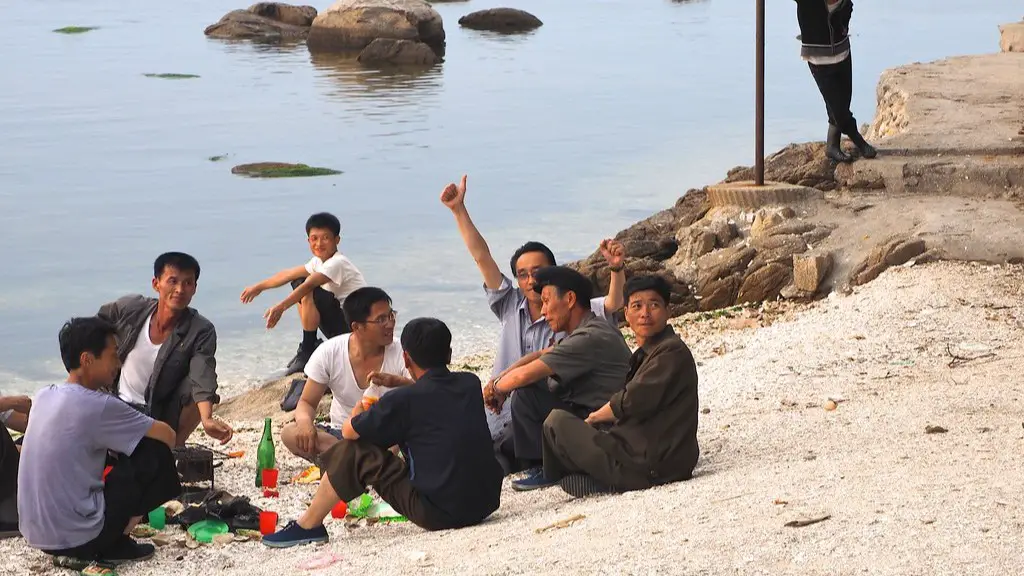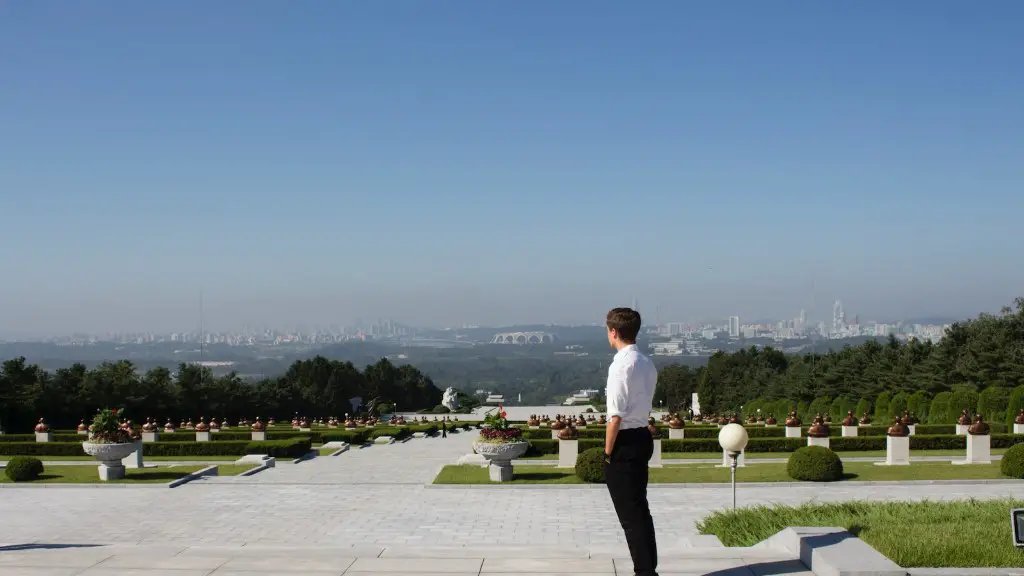North Korea is undoubtedly one of the most controversial, confusing, and elusive countries in the world today. Ever since its creation as a Communist-style nation in 1948, the country has been a source of diplomatic tension and geopolitical instability on the Korean Peninsula and around the world. In the last few years, the regime of Kim Jong Un has been challenging the international community with its development of ballistic missiles, nuclear arms, and other military capabilities, as well as its belligerent behavior towards neighbor countries. Despite numerous attempts to resolve the North Korean problem, reaching a peaceful and long-lasting resolution remains a daunting obstacle. It is essential, therefore, to examine the current situation and formulate viable strategies for resolving the conflict.
Political and diplomatic implications:
The North Korea problem has direct implications on the political and diplomatic environment of the Korean Peninsula and on the entire world. The conflict damages the already delicate relations between North and South Korea, as well as between North Korea and the international community. Moreover, it makes it difficult to cooperate with North Korea and resolve other regional issues. North Korea’s aggressive stance and its nuclear development programs also represent a serious threat to peace and security, while undermining international institutions such as the United Nations. It is therefore essential to find a peaceful resolution to the problem.
Economic considerations:
The North Korea problem has direct economic implications as well. With its isolated economic system, North Korea relies on international economic assistance, yet it also uses its resources for other purposes, including military ambitions. This leads to great disparities between the wealthy and the poor, as well as between economic activity in North Korea and in the global economy. It is also difficult for other countries to impose economic sanctions on the hermit kingdom, as evidenced by its refusal to comply with several international acts that would restrict its military buildup. To resolve this complex economic situation, it is necessary to come up with creative solutions that both provide North Korea with economic incentives while also curtailing its military programs.
Security issues:
The North Korea conflict has tremendous security implications as well. Its closed-border policy and extensive military buildup have made it a great concern to the entire international community. It is also known to maintain a vast arsenal of conventional and unconventional weapons, posing a grave threat to regional and global stability. As such, it is essential to take measures to reduce its military capabilities, while also promoting stronger security measures on the Korean Peninsula. Some strategies involve enhancing regional cooperation, increasing intelligence sharing among countries, and using sanctions and other diplomatic tools.
Potential solutions:
A number of potential solutions have been proposed for resolving the North Korea conflict, both domestically and internationally. The former includes addressing the underlying issues within the country, such as the severe economic disparity, the lack of political liberty, and the oppressive regime. This can involve providing economic assistance or furthering economic and political reforms. On the international level, a number of strategies have been proposed, including direct negotiations with the North Korean government, diplomatic pressure through UN sanctions, and regional cooperation. It is also important to consider how to address the North Korea issue in a larger regional context and ensure lasting solutions.
Role of China:
The role of China in this conflict is of particular importance. As a major power in the region and North Korea’s ally, Beijing has the greatest influence on Pyongyang and can be instrumental in finding a peaceful resolution. China has already taken steps to reduce tensions by imposing sanctions on North Korea and engaging in dialogue. It is also open to further cooperation and is eager to promote economic development in the region. As such, it should be regarded as a key partner for formulating viable solutions to the North Korea problem.
Future outlook:
Despite the current tensions and diplomatic stalemate, there is hope for a peaceful resolution to the North Korea conflict, as long as all parties involved take meaningful steps to address the underlying issues and find common ground. With the right strategies and diplomatic efforts, it is possible to achieve a lasting peace on the Korean Peninsula and promote prosperity in the region.
Military deterrence:
Military deterrence is another important factor that should be considered in the North Korea situation. The international community should work together to strengthen military alliances, promote defense capabilities, and enhance military training, so that North Korea is less likely to attack its neighbors or other countries. This could involve joint exercises, intelligence sharing, and other forms of military cooperation.
Humanitarian aid:
Beyond finding a diplomatic and political solution, international stakeholders should also consider providing humanitarian aid to the North Korean population. This could involve programs to provide food, medicines, and education services to the most vulnerable people in the country. While these actions would not directly address the underlying diplomatic and security issues, they would improve the living conditions of millions of North Korean people, helping to create an atmosphere of understanding and trust.
Education and awareness:
Raising awareness and educating the global public about the North Korea issue is also necessary to promote a lasting solution. This could involve initiatives such as talks, seminars, and educational campaigns to inform people about the situation in North Korea and the potential solutions. It is also essential to understand the perspectives of all stakeholders in the conflict, including those of North Korean citizens, in order to develop effective strategies for resolution.


